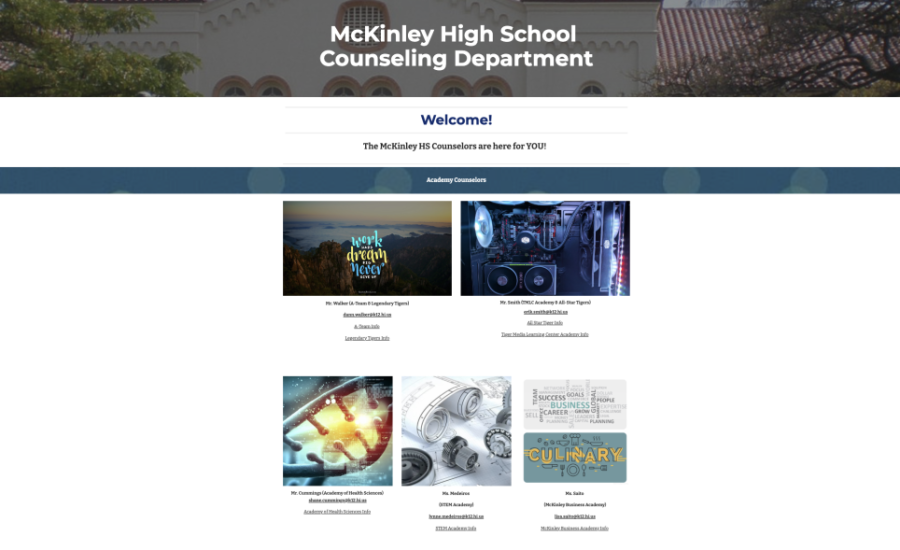Counselors Clear Misinformation
Students can find information about how to reach counselors at McKinley High School’s website –> Academics –> Counselors.
December 5, 2022
Located in A building on the first floor is the counselor’s offices. Many students only stop by the counselors office to ask for help with their schedules or talk about colleges. Even less often does a student ever stop by to talk about feelings and what is going on within their life. This has sparked a question on why students don’t feel comfortable with talking to school counselors about what they are struggling with.
Turns out, plenty of students believe that school counselors will always tell their parents or guardians about what they have told their counselors. Students also believe that school therapists can only see students with a diagnosis and they believe that school therapists won’t report anything a student told them. However, all of this information is not true.
Freshman Chance Saveena Martinez is one of the students who believed this misinformation. They said that any student who knows they have a problem should see someone they know they can trust. When asking students where they heard that counselors don’t commit to confidentiality, a majority of them told this reporter they heard from other students and friends.
“I had no idea that students were thinking this, counselors don’t need to break confidentiality. We usually only call parents or a crisis team when we feel a student is at risk of harming themselves or others,” Erik Smith, counselor for All Star Tiger Team and TLMC Academy, said.
School therapists play by the same rules that the counselors do; the only difference is that the school therapists specialize with students with a diagnosis. “Students who have a diagnosis, IDEA or a 504 can see a school therapist,” Shane Cummings said.
This misinformation can be incredibly harmful to students who are under the belief that they are not able to trust counselors with their situations. Students need to know they can trust the staff in their school, especially their counselors.
“I believe that us counselors aren’t out there much with the students and we mostly just stay in our offices and that doesn’t really help out. The counselors need to get their voices out there and let students know we can be trusted,” said Smith.






